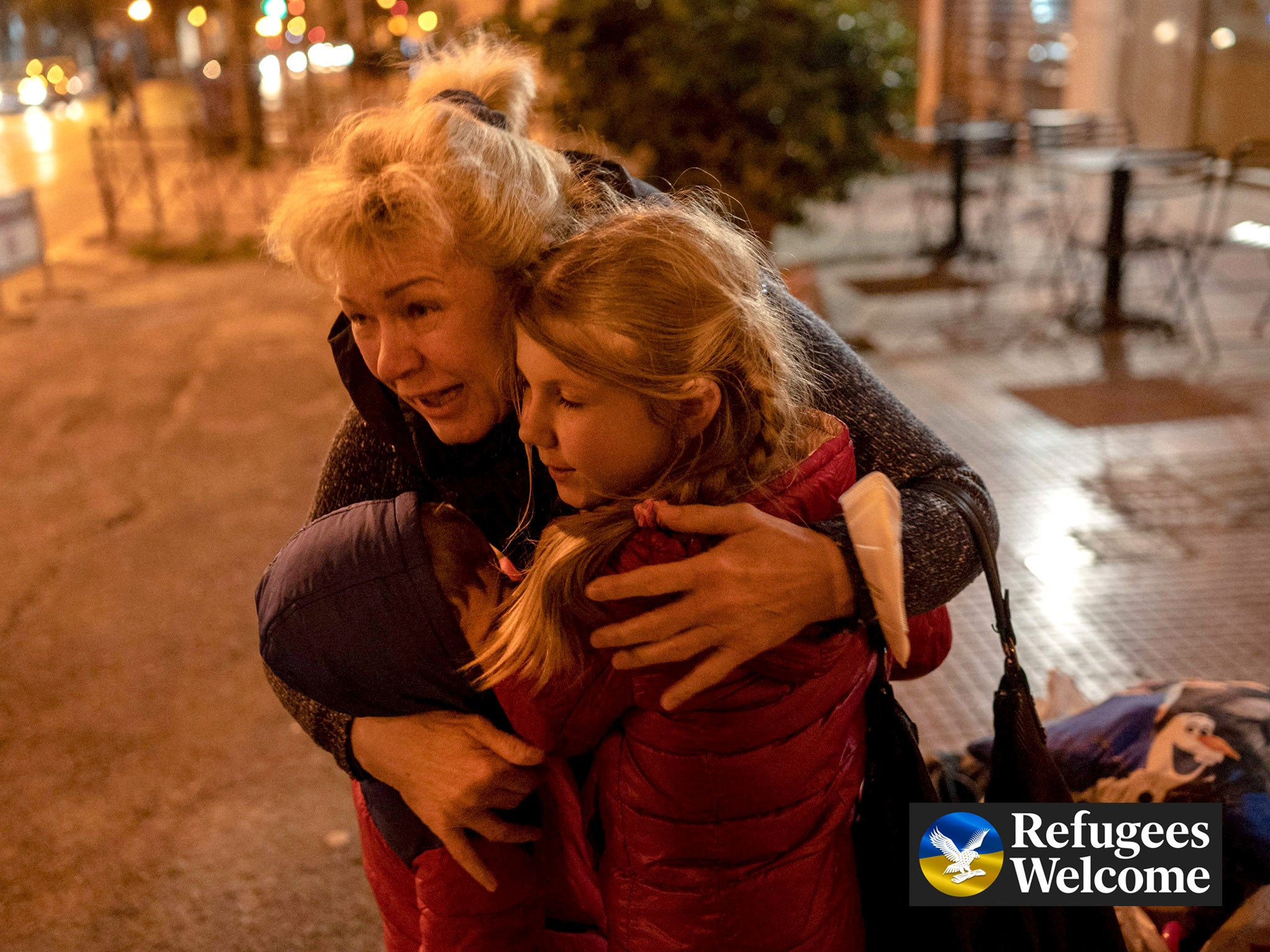Why giving cash is better than alternatives to help Ukrainian refugees
Refugees Welcome: Giving people dignity through cash transfers is the best way to help those caught in the crisis in Ukraine and bordering countries


Your support helps us to tell the story
From reproductive rights to climate change to Big Tech, The Independent is on the ground when the story is developing. Whether it's investigating the financials of Elon Musk's pro-Trump PAC or producing our latest documentary, 'The A Word', which shines a light on the American women fighting for reproductive rights, we know how important it is to parse out the facts from the messaging.
At such a critical moment in US history, we need reporters on the ground. Your donation allows us to keep sending journalists to speak to both sides of the story.
The Independent is trusted by Americans across the entire political spectrum. And unlike many other quality news outlets, we choose not to lock Americans out of our reporting and analysis with paywalls. We believe quality journalism should be available to everyone, paid for by those who can afford it.
Your support makes all the difference.The Ukrainian conflict and accompanying humanitarian crisis have prompted a massive outpouring of support all around the world. Some are offering up their homes to host refugees, while others are organising collections of goods to send to people in Ukraine or neighbouring countries.
These are very generous solutions, but I’d like to explain why donating cash to charities is better; and why some charities will then pass on those cash donations as cash, rather than buying goods.
We understand why people like to donate goods in an emergency, but we can’t send food, clothes, blankets or medical equipment from the UK even if they’re in perfect condition. Customs regulations and transport costs make the process of exporting items very complicated, time-consuming and expensive. The expense is usually more than the goods are worth. We also don’t have the capacity to sort the goods here or to distribute them once there. It’s usually much easier to buy items in the countries where they are needed. It’s also usually cheaper and helps local markets and economies, helping countries to get back on their feet.
Think of the carbon footprint of driving goods 1,500 miles, when they could just as easily be bought in a shop in Poland, Moldova or Romania.
So, this explains why donating cash is better than donating goods. But what will we do with your donations once we have them? Well, sometimes, we won’t even buy goods in-country or in neighbouring countries. Sometimes we will just give cash to people in need of help.
Imagine fleeing your home under heavy bombardment. If you’re lucky, there will be a break in shelling, and you’ll have a car. You will pack it up with as much as you can and you will cross the border into a safe, neighbouring country. If you’re not so lucky, you’ll have travelled by foot, carrying with you as much as you can in a small case. Either way, you won’t have much with you. You’ll be leaving so much behind. When you reach the safety of a neighbouring country, you’ll be exhausted and in despair. You’ll be desperate to maintain contact with your friends and family back home or in other neighbouring countries. But you’ll no longer be earning money. You may not be able to access your savings from the bank. You may not have any savings. You’ll need food and drink and warmth; you may need credit for your phone so you can keep in touch with your loved ones. So, it is highly likely that you will need and want cash.
To keep up to speed with all the latest opinions and comment sign up to our free weekly Voices newsletter by clicking here
Charities can hand over cash to people in need of help so they can make choices on how best to spend the money. It’s a dignified way of giving people support. It lets people know we trust them. It gives people freedom and power when they have none. And it helps local economies.
In most situations, there is strong evidence that money – not goods – is the most efficient and effective way to distribute emergency aid. Giving cash transfers is not wasteful, does not create dependency and is empowering and effective.
There are some concerns that cash could be diverted, but there are ways to prevent waste, in particular by paying directly to beneficiaries and being very clear about who is getting what.
Quality control is vital too. Some people have donated infant formula and, while that is well-intentioned, that can be dangerous. People on the move often do not have a clean reliable place to mix the formula or clean the feeding equipment. They might not be able to mix it with clean water. They might also not be able to dilute the artificial milk in the right way if the label is not in their language. When infant formula is donated during emergencies, we tend to see a direct correlation between these donations and babies falling sick – or even dying.
So please, give cash not goods. And please also welcome it when charities say they are setting up cash transfer programmes.
Donations can be made at www.dec.org.uk or by calling 0370 60 60 900. Judith Escribano is Assistant Director of Communications for Action Against Hunger.
The Independent has a proud history of campaigning for the rights of the most vulnerable, and we first ran our Refugees Welcome campaign during the war in Syria in 2015. Now, as we renew our campaign and launch this petition in the wake of the unfolding Ukrainian crisis, we are calling on the government to go further and faster to ensure help is delivered. To find out more about our Refugees Welcome campaign, click here. To sign the petition click here. If you would like to donate then please click here for our GoFundMe page.
Join our commenting forum
Join thought-provoking conversations, follow other Independent readers and see their replies
Comments